面向公众环境教育的严肃游戏设计——以城市野生动物与人的关系为议题
Serious Game Design for Public Environmental Education: Focusing on the Relationship between Urban Wildlife and Humans
古坷懿
| 关 键 词: | 游戏,严肃游戏,城市野生动物,说服性游戏,环境教育 |
| Keywords: | games, serious games, urban wildlife, persuasive games, environmental education |
摘 要
由于城市化与信息化的发展带来的自然缺失,在公众的普遍认知当中,野生动物存在于非城市区域,如自然保护区、农田、森林等。然而,野生动物在城市生态系统中的地位不容忽视,物种多样性与城市环境息息相关。传粉昆虫、鸟类、小型哺乳动物、两栖动物、爬行动物广泛地分布在城市的碎片化生境中,但由于城市建设、栖息地环境改变、人为干扰等因素,很多物种种群在逐渐衰退以至灭绝。公众作为城市环境建设与享有的主体,应当认识到多物种的存在,并试着理解人与动物在城市中的关系,思考与其它物种的“共存之道”。
严肃游戏,即以非单纯娱乐性作为目标的一类游戏,能够被广泛应用于支持公众的态度和行为改变。与传统媒介相比,游戏被认为具有多维度的说服能力——程序性说服即是其特有的说服方式,但游戏通常也能够通过叙事、传达感知层面的信息、唤起情感、引起社会性讨论等多维度的方式进行说服,而这些多维度的组合也为游戏的说服机制带来了多种可能性。
本文以“面向公众环境教育的严肃游戏设计”为研究对象,意在通过对媒介方法的研究支持设计实践,使用游戏这一具有多维度说服力的媒介促使公众反思城市中人与野生动物之间的关系。本研究将主要分析说服性游戏的相关概念与理论,尤其是“说服力”维度理论,并结合与环境教育相关的游戏案例分析,作为实践的方法论指导。本研究的实践部分将结合游戏期望玩家达到的目标态度制定说服策略,并为严肃游或说服性游戏在环境教育、城市野生动物议题中的应用提供实践经验。
Abstract
Due to the loss of nature brought about by urbanization and informatization, the general public perception is that wildlife exists in non-urban areas such as nature reserves, farmlands, forests, etc. However, the role of wildlife in urban ecosystems cannot be overlooked, as biodiversity is closely related to the urban environment. Pollinating insects, birds, small mammals, amphibians, and reptiles are widely distributed in the fragmented habitats of cities, but due to urban construction, habitat environmental changes, human disturbances, and other factors, the populations of many species are gradually declining to the point of extinction. The public, as the main beneficiaries and builders of the urban environment, should recognize the existence of multiple species and try to understand the relationship between humans and animals in cities, and consider the “ways of coexistence” with other species.
Serious games, a type of game aimed not solely at entertainment, can be widely applied to support public attitude and behavior change. Compared to traditional media, games are considered to have multidimensional persuasive capabilities – procedural persuasion is a unique way of persuasion, but games can also persuade through narrative, conveying sensory-level information, evoking emotions, and sparking social discussions in multidimensional ways, which brings a variety of possibilities to the game’s persuasive mechanisms.
This article focuses on the design of serious games for public environmental education, aiming to support design practices through the study of media methods, using games as a medium with multidimensional persuasive power to prompt the public to reflect on the relationship between humans and wildlife in cities. This study will mainly analyze the concepts and theories related to persuasive games, especially the “persuasive dimension” theory, and combine with game case studies related to environmental education as methodological guidance for practice. The practical part of this study will develop persuasive strategies based on the target attitudes that games expect players to achieve and provide practical experience for the application of serious or persuasive games in environmental education and urban wildlife issues.
目 录 · Contents
第1章 绪论
第2章 严肃游戏与公众说服
第3章 面向环境教育的严肃游戏
第4章 城市野生动物与人的关系问题初探
第5章 以城市野生动物为议题的严肃游戏设计实践
1.1 研究对象与背景
1.1.1 环境教育的兴起
1.1.2 关注“城市野生动物”问题的必要性
1.1.3 严肃游戏介入环境教育的潜力
1.2 国内外研究现状
1.3 研究问题
1.4 研究内容
1.5 研究方法
1.6 论文结构
2.1 严肃游戏
2.1.1 严肃游戏与游戏
2.1.2 严肃游戏的潜力
2.1.3 严肃游戏的概念反思
2.2 说服性游戏
2.2.1 传达观念与态度的游戏——说服性游戏
2.2.2 说服性游戏的理论发展
2.3 “说服力维度”模型的阐释
2.3.1 语言说服
2.3.2 视觉说服
2.3.3 声音说服
2.3.4 触觉说服
2.3.5 程序性说服
2.3.6 叙事性说服
2.3.7 电影性说服
2.3.8 关于“说服力维度”模型的分析总结
2.4 旨在说服或传达意义的游戏案例分析
2.4.1 使用叙事性说服作为主要说服策略
2.4.2 使用程序性说服作为说服策略
2.4.3 使用叙事与程序的交织作为策略
3.1 环境教育与严肃游戏的关系
3.1.1 环境教育
3.1.2 严肃游戏如何干预环境教育
3.2 面向环境教育的严肃游戏案例分析
3.2.1 Collapsus—应对能源危机行动与后果展现
3.2.2 Outer Wilds—置身宇宙中反思种族命运
3.2.3 ABZÛ—潜水模拟与修复海洋
3.2.4 Alba:野生动物冒险—亲自然体验
3.3 案例总结
4.1 城市野生动物的定义
4.2 关系的失衡与平衡
4.2.1 关系的“失衡”
4.2.2 促进关系的“平衡”
4.3 实地调研与问题探究
4.3.1 专家访谈
4.3.2 实地调研
4.3.3 针对特定物种的问题梳理
5.1 说服性游戏设计框架建立
5.1.1 态度目标状态(AGS)建立
5.1.2 游戏特征
5.1.3 玩家特征
5.2 方案推演
5.2.1 方案1:拼图作为游戏机制
5.2.2 方案2:搭建城市装置作为游戏机制
5.2.3 方案3:观察作为叙事方式
5.3 叙事性说服要素建立
5.4 程序性说服要素建立
5.4.1 Chapter1 传送任务—帮助蝴蝶寻找寄主植物
5.4.2 Chapter2 鸟类通信—收集线索机制
5.4.3 Chapter3 查看雕塑记忆—寻找刺猬的踪迹
5.5 视觉说服要素建立
5.5.1 风格设定
5.5.2人物设计
5.5.3 场景设计
5.6 语言说服要素建立
5.7 用户测试
5.7.1 问卷设计
5.7.2 数据统计
第6章 总结与展望
6.1.对研究问题的回答总结
6.1.1 严肃游戏作为传达意义与说服的媒介
6.1.2 关于“城市野生动物与人的关系”的探讨结论
6.1.3 设计实践的有效性
6.2 研究的创新点与未来展望
参考文献
附录A 问卷
附录B 设计文本
附录C 展览现场照片
致谢
个人简历、在读期间发表的学术成果
部 分 插 图 · Figures
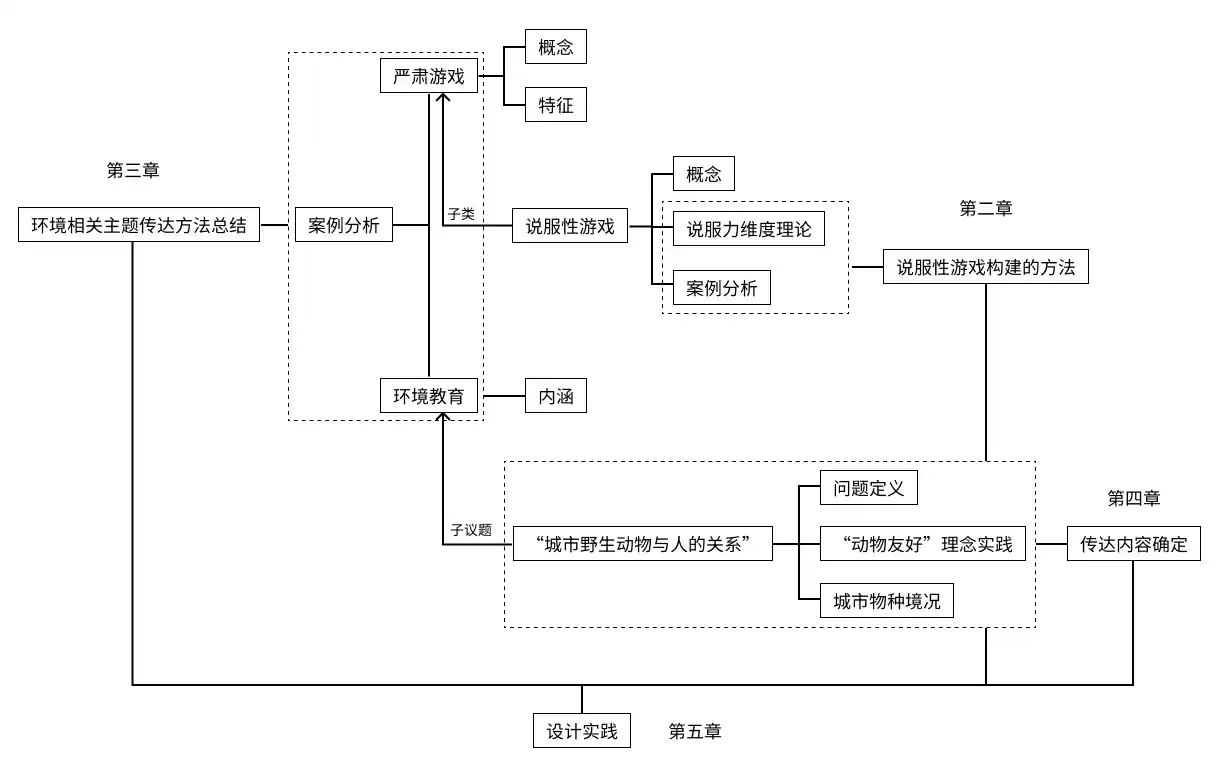
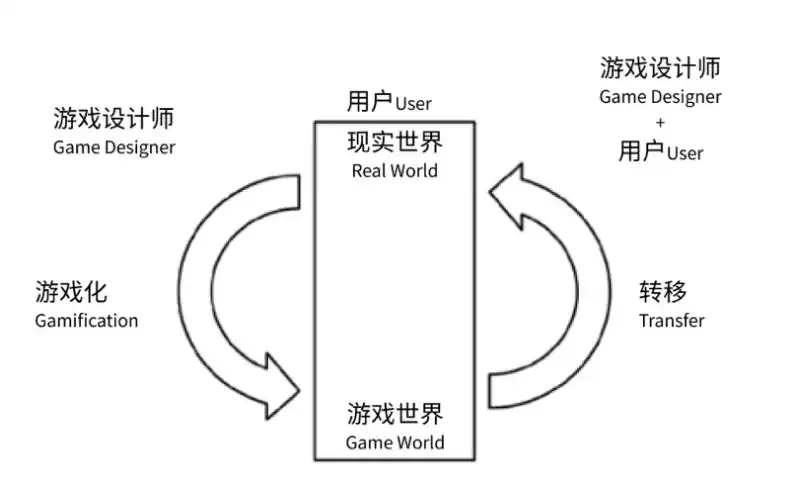
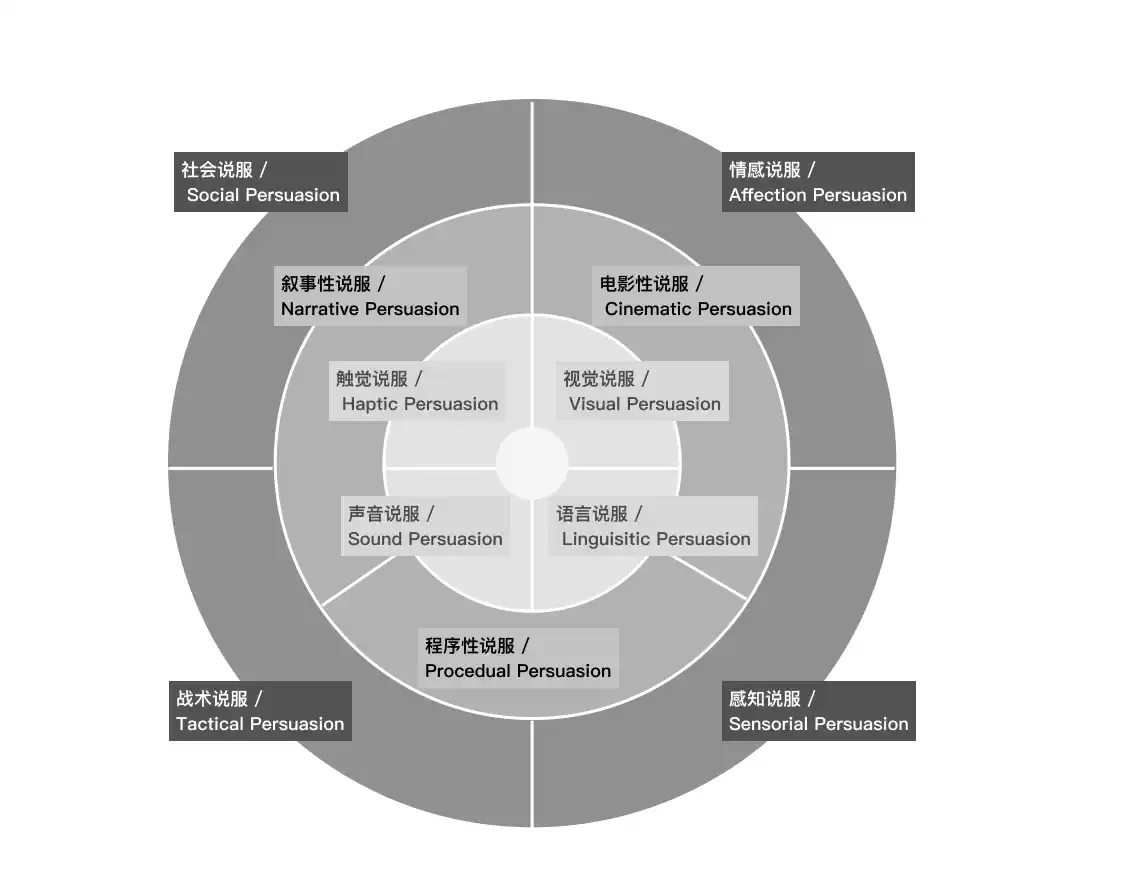

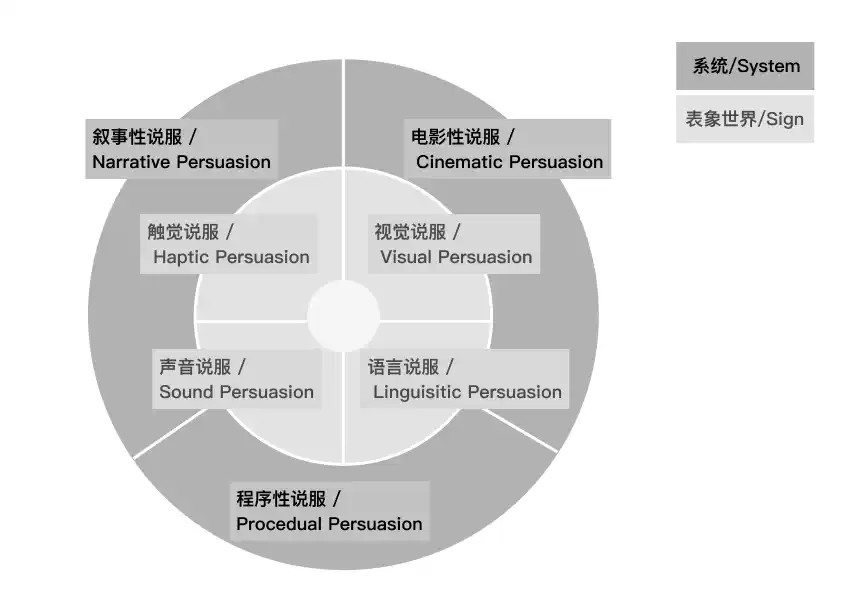
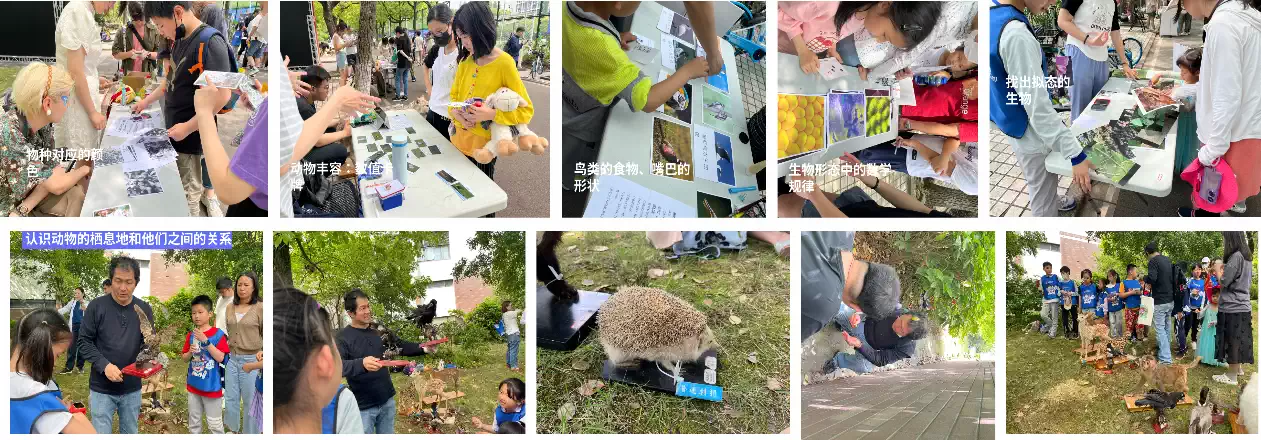

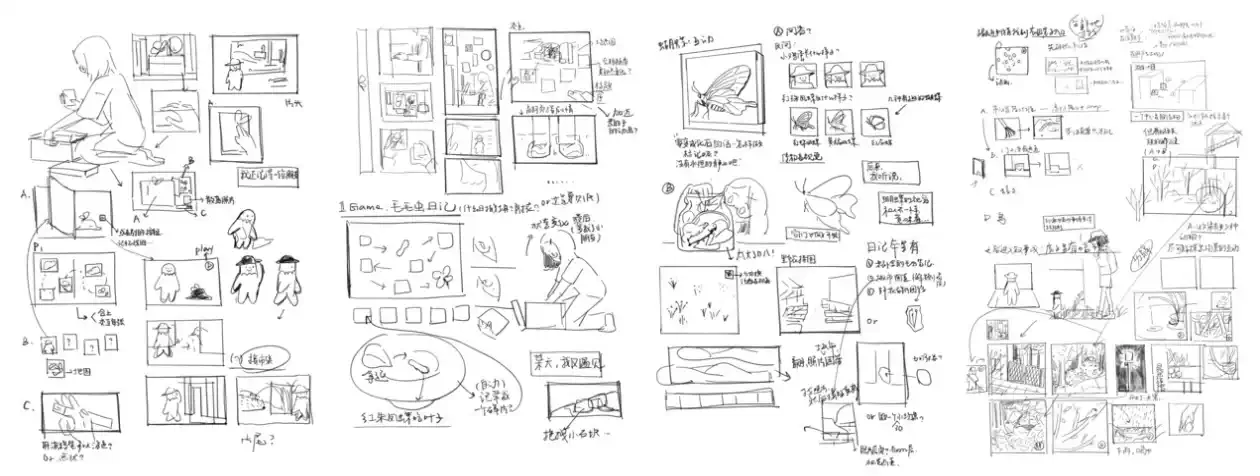
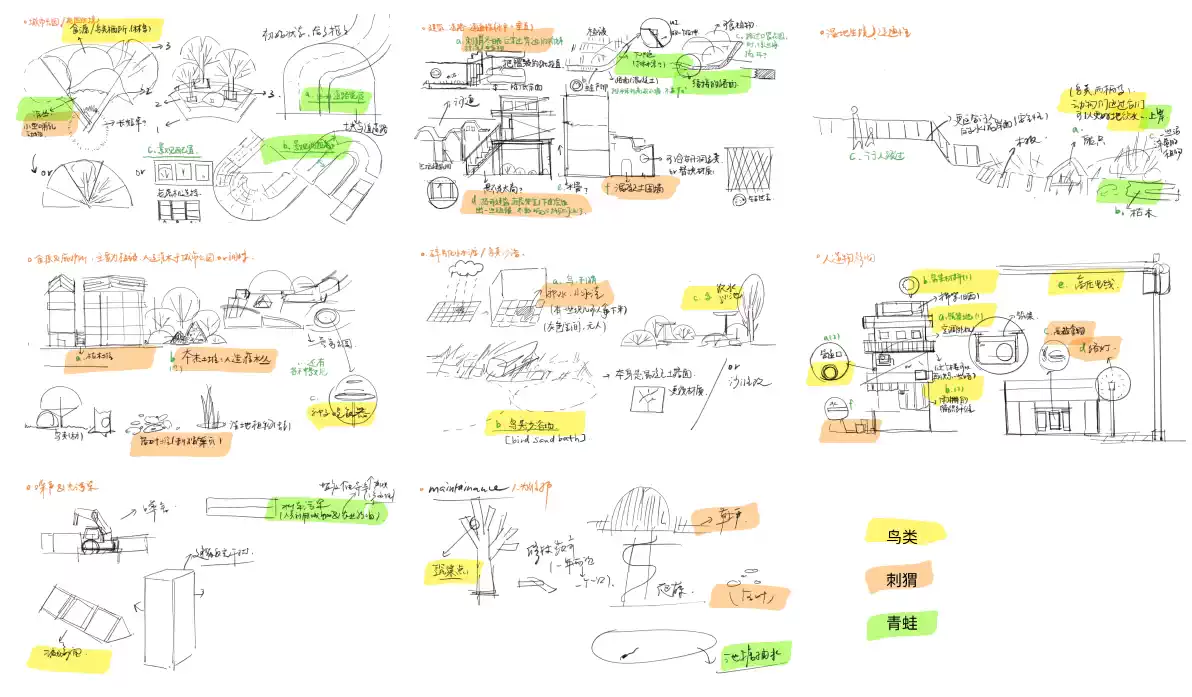


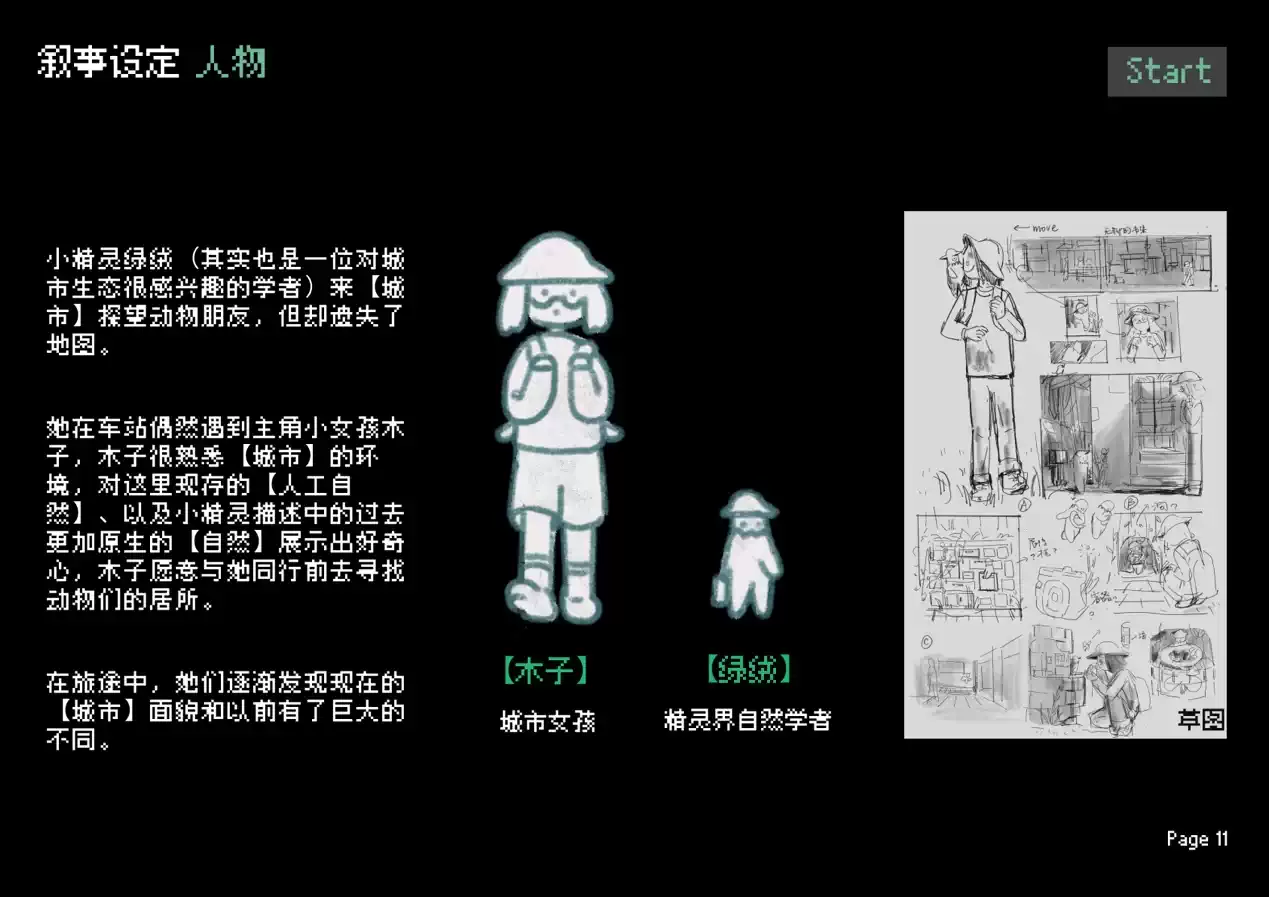
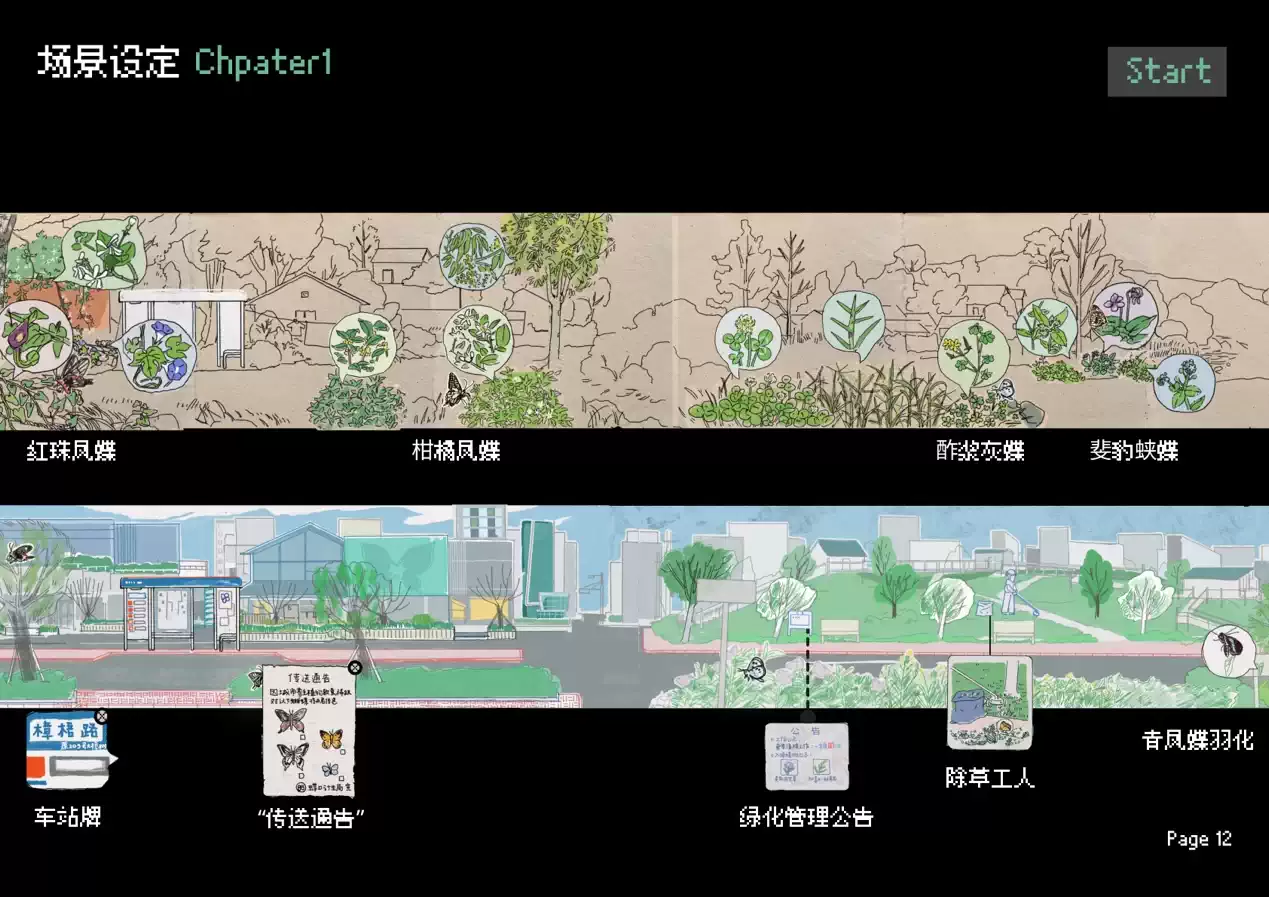
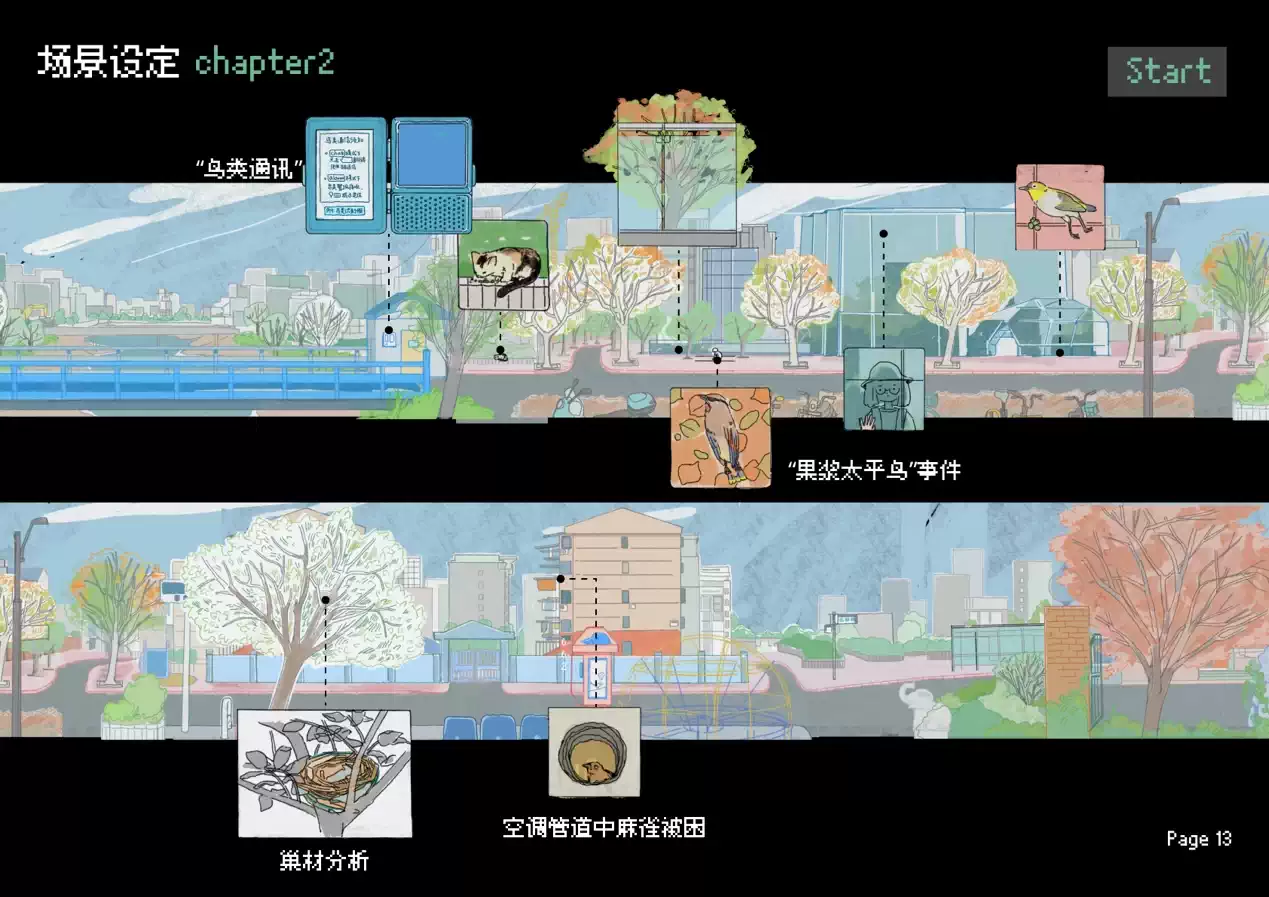
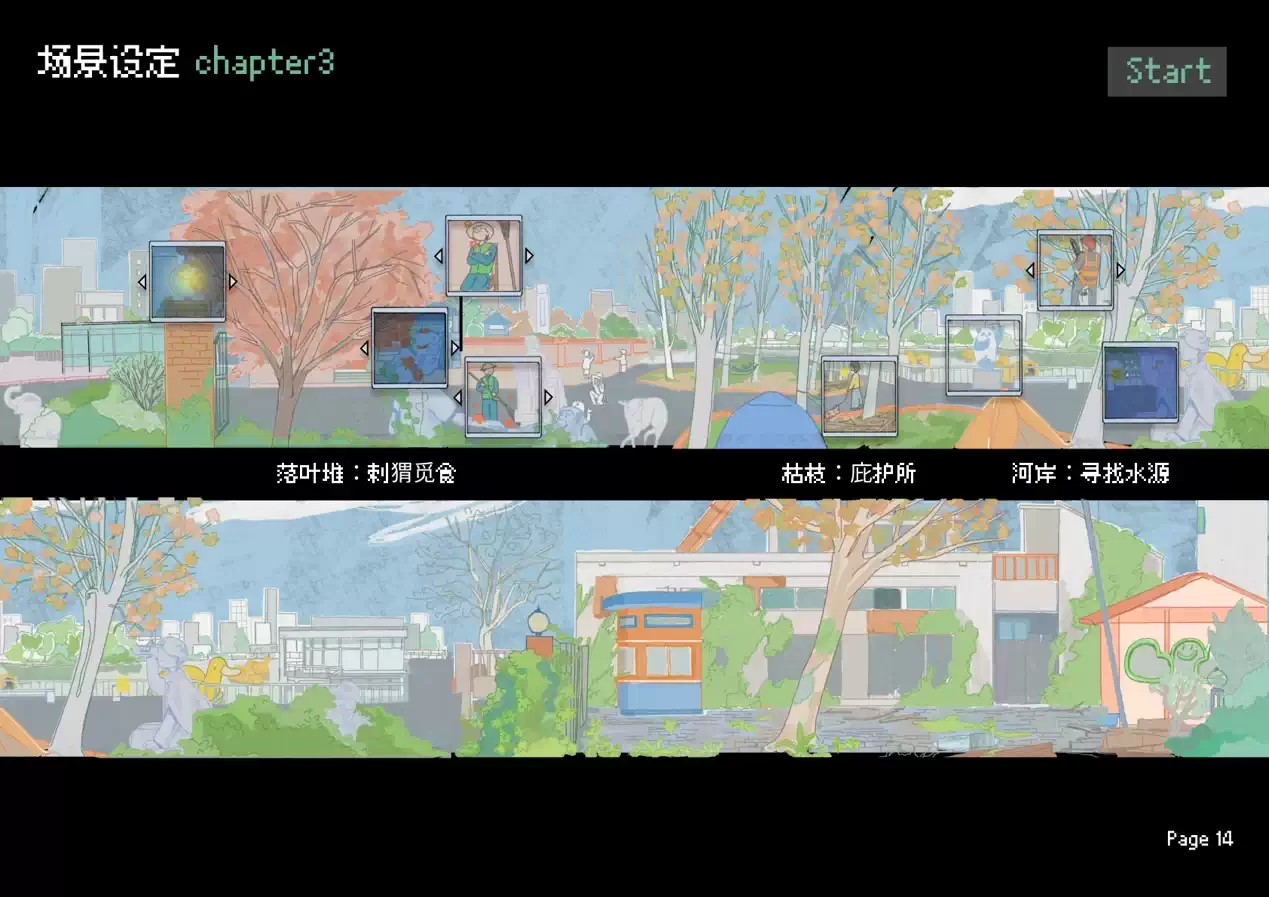
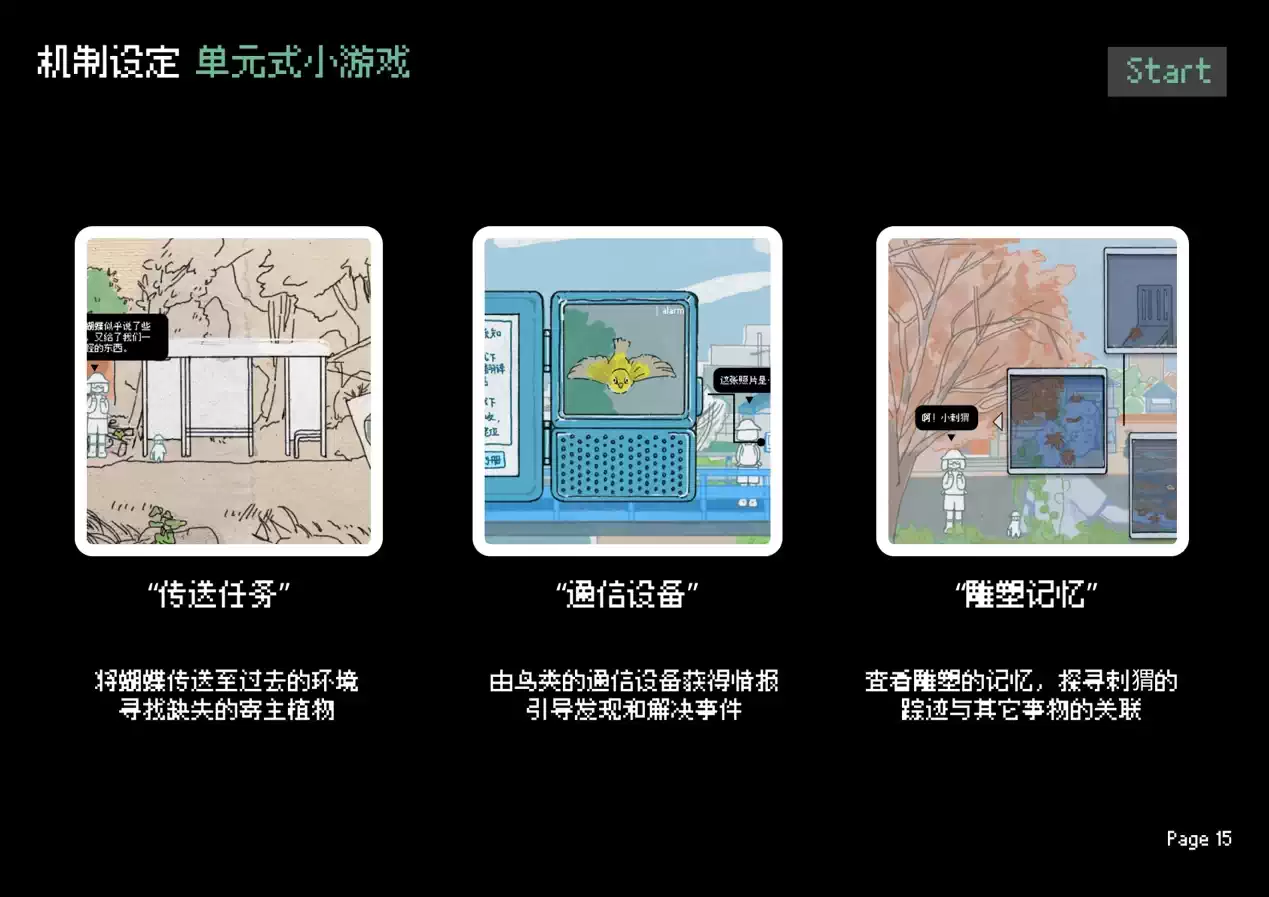
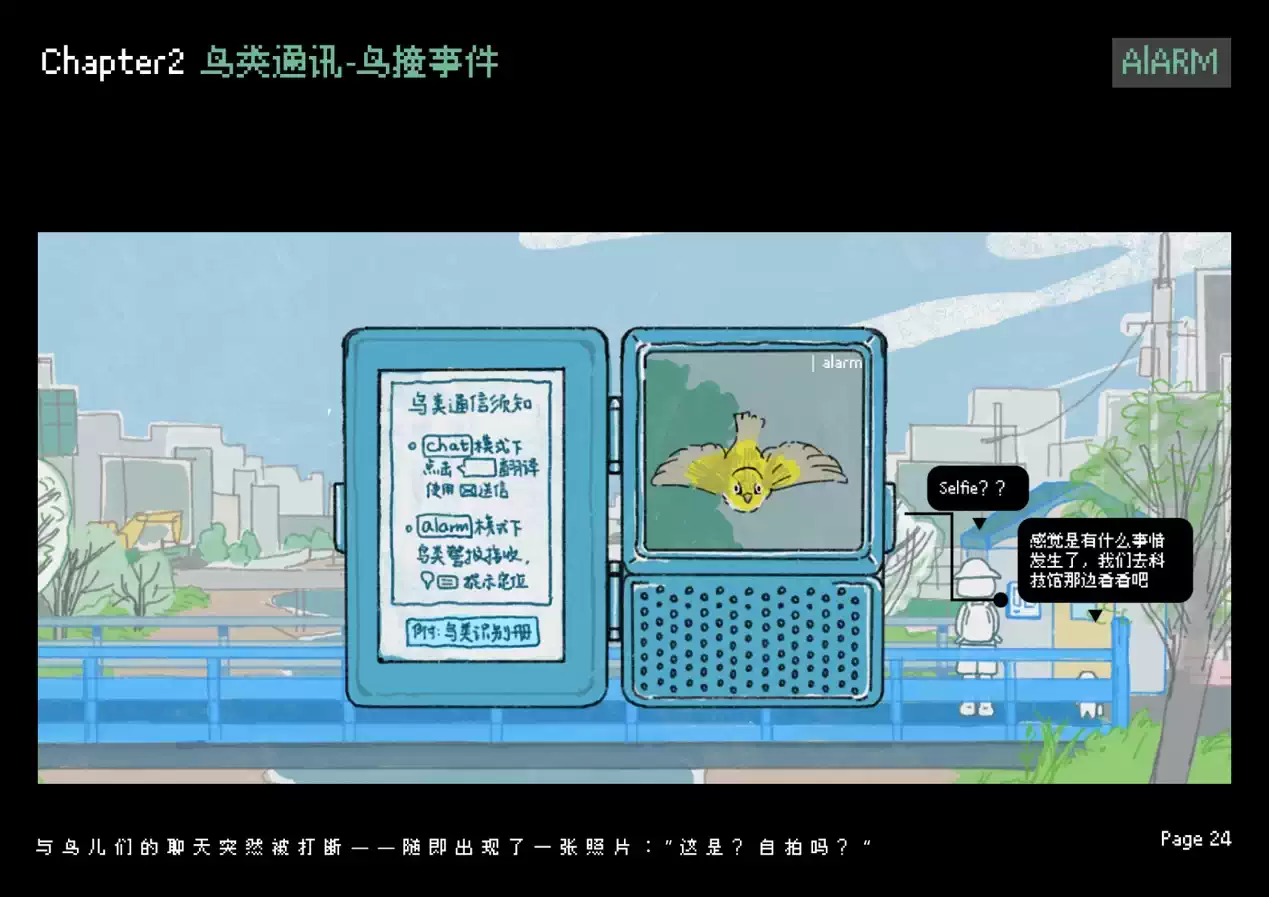

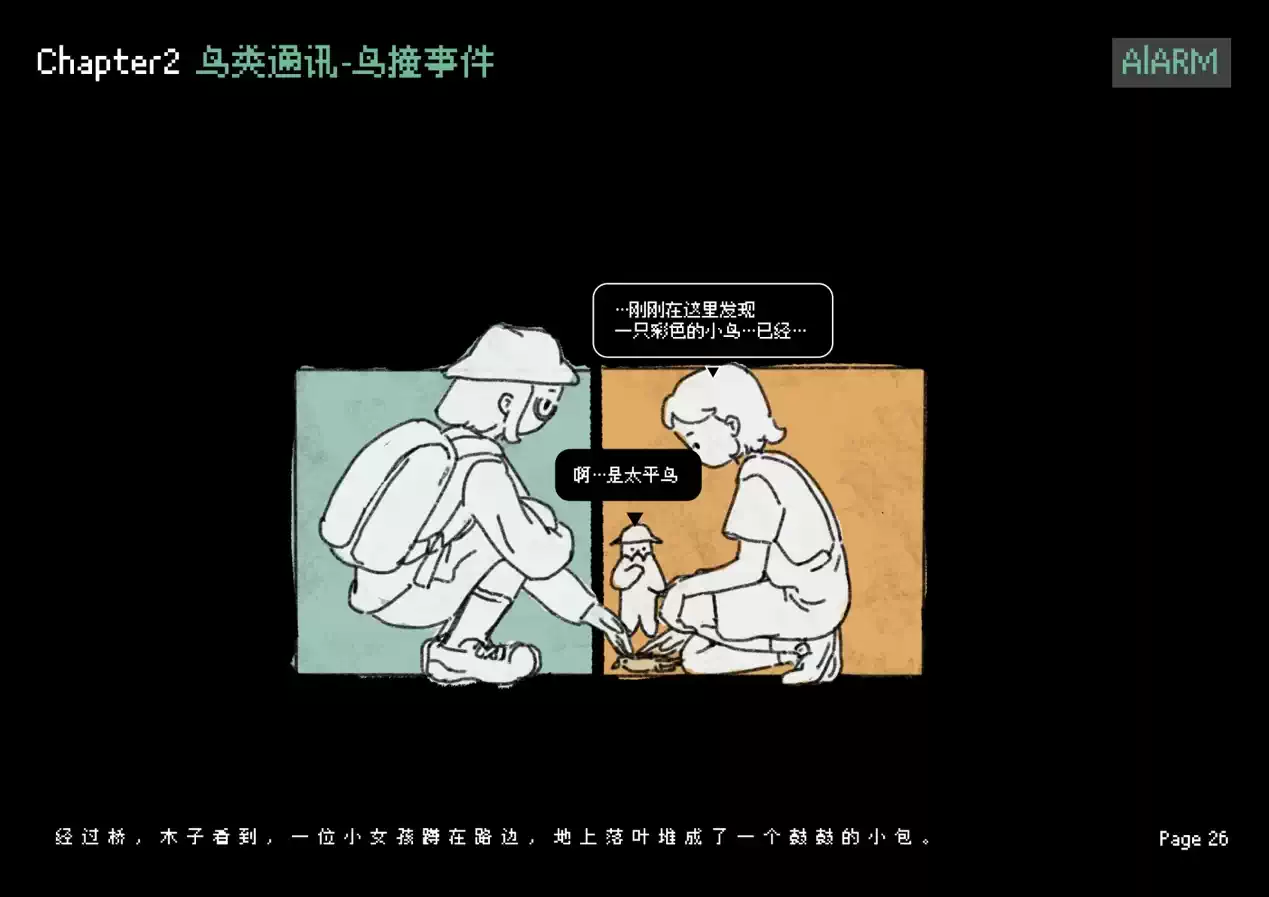

dis_gukeyi_2024_01
dis_gukeyi_2024_02
dis_gukeyi_2024_03
dis_gukeyi_2024_04
dis_gukeyi_2024_05
dis_gukeyi_2024_06
dis_gukeyi_2024_07
dis_gukeyi_2024_08
dis_gukeyi_2024_09
dis_gukeyi_2024_10
dis_gukeyi_2024_11
dis_gukeyi_2024_12
dis_gukeyi_2024_13
dis_gukeyi_2024_14
dis_gukeyi_2024_15
dis_gukeyi_2024_16
dis_gukeyi_2024_17
dis_gukeyi_2024_18
dis_gukeyi_2024_19
dis_gukeyi_2024_20




















本网站内所有资料属于数字动画与数字娱乐实验室及相应创作团队或企业,未经许可请勿传播(沪ICP备2022027791号)All content is copyrighted by the DAELab or corresponding organizations. No distribution is allowed without permission.